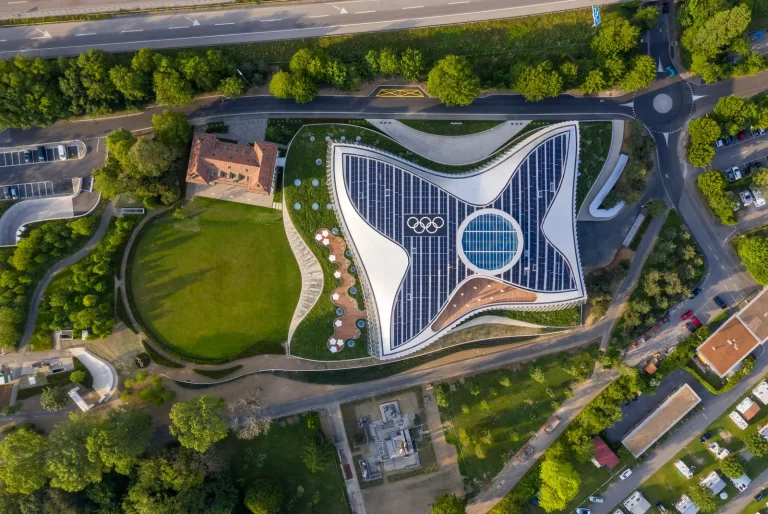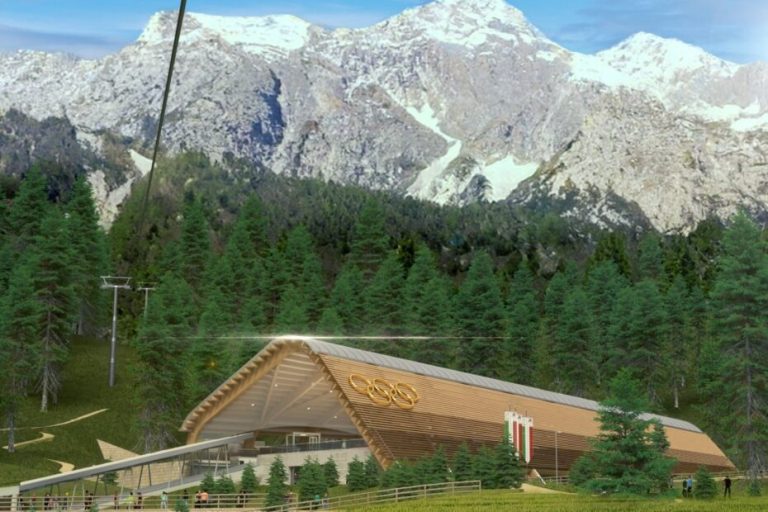
Italian government officials Friday signed a 81.6 million euros (USD 88.7 million) deal to construct a sliding track for bobsled, luge and skeleton for the Milan-Cortina 2026 Olympic Winter Games, a move likely to cause increased tensions between the organizing committee and the International Olympic Committee (IOC) that previously advised against the risky project.
Construction firm Impresa Pizzarotti & C. is set to begin replacement of the former Eugenio Monti Sliding Track on February 19 – less than two years before the opening of the Games and just months before test events are expected to be staged. It took several months and two open tenders before the organizing committee was able to receive its single bid in January to build the venue that was originally constructed for the Cortina 1956 Winter Olympics
Even during Italy’s bid campaign to host the Games, IOC officials urged organizers to use a nearby existing track across the border to avoid any costly white elephant legacies that have commonly become haunting memories of previous budget-busting Games around the world.
The sliding track used for Italy’s Turin 2006 Winter Games has since been mothballed and was ruled out for the 2026 edition,
Milan-Cortina has promised that the track will be ready for testing by October 2024 and certified no later than March 2025 – an extremely aggressive and potentially record-breaking schedule for the complicated project. That will also leave limited time for test events ahead of the Games less than a year later in February 2026.
Any delay could instantly end the hope for Olympic sliding in Cortina despite the completed construction of the venue and additional costs to change plans.
As requested by the IOC, Italian organizers reached out to other selected tracks for proposals in December and several responded with interest including from nearby St. Moritz, Switzerland and Innsbruck, Austria and Germany. These proposals will be retained in case of delays or failures of the risky project.
1932 and 1980 Winter Games host Lake Placid also submitted a proposal despite being an ocean apart from Italy.
The IOC is expected to weigh in on the proposed venue. Earlier this month IOC Executive Director Christophe Dubi told reporters “we, from the very beginning felt that this venue was extremely complex in terms of cost, in terms of legacy, in terms of timing, and we have promoted the use of an existing track.”
A January 31 resolution had been promised.
Italian officials remain steadfast in their ability to successfully deliver the venue and avoid investing in a facility in another nation.
“The choice puts a full stop on it and attests to the extreme determination of this government to finish all the works for the Games in the best way and in Italy,” a statement read, according to the Associated Press.
“Transport Minister Matteo Salvini and Sports Minister Andrea Abodi confirm that with great satisfaction.”
But not everyone is so confident. On Friday Italian Finance Minister Giancarlo Giorgetti said he had regrets about backing the Games and now fears delays could taint preparations.
“There are two years left, time is running out terribly fast and it’s becoming almost impossible to respect the schedule,” Giorgetti said according to ANSA news agency.
“Let’s see what we can do to avoid missing this historic opportunity,” he said added, stressing the urgency of the schedule.
A fatal luging accident on the Whistler sliding track just hours before the opening of the Vancouver 2010 Winter Games led to track modifications before competition could begin. Since that incident there has been increased attention to safety and design and more time spent on testing. No modern track has been built in timeframes now being proposed by organizers.
The IOC also warned South Korean officials not to build the PyeongChang sliding track for the 2018 Winter Games and instead stage the event at an existing venue in Japan. The advice was ignored and the track was built anyways (over a longer time period) and was featured at last month’s Winter Youth Olympic Games (YOG).
Italy’s Lombardy and Trentino are also vying to host the 2028 Winter YOG by leveraging venues, including the new sliding track, from the 2026 Games. IOC president Thomas Bach said Thursday before the closing of the Gangwon 2024 Winter YOG that the 2028 host city election would not happen before the end of this year or early 2025. the IOC.


